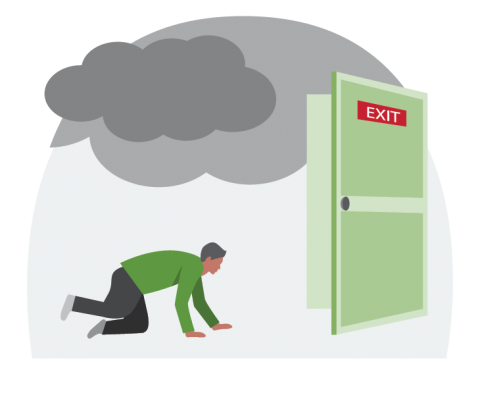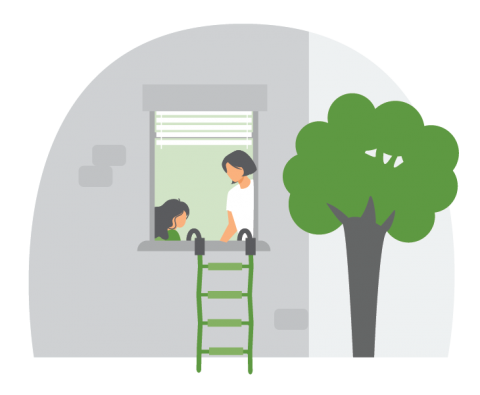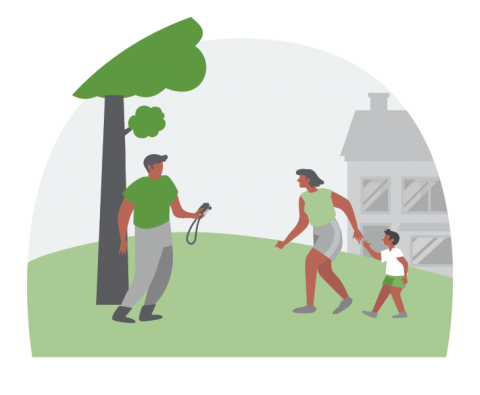Creating and practicing a home fire escape plan is simple. Follow the steps below to make sure everyone in your home is prepared and knows what to do in case of a home fire.
- Make a written home fire escape plan and practice getting out in under 2 minutes.
- Make sure you have smoke alarms on every level of your home and in each bedroom. Test them twice a year.
- Learn the best practices for home fire safety and fire safety with children.
Make an Escape Plan

- Learn two ways out of every room in your home, in case one exit is blocked or dangerous to use. A second way out can include an escape ladder for rooms on an upper level.
- Practice getting low and moving to your exits in case there is smoke.
- Choose a safe meeting place a safe distance from your home.
- Have a home fire drill at least twice a year.
Children and Fire Safety
It is important to have a plan when there are children in your home. Children may become very scared and need clear direction and help getting out of the house. They may not know how to escape or what to do unless an adult shows them.

- Have a plan for young children under six who cannot get outside by themselves. In your plan, talk about who will help each child get out safely.
- Children should know what to do when they hear a smoke alarm and there is no adult around. Help them practice going to the outside meeting place.
- Teach children to NEVER go back inside a burning building. Once they are out, stay out!
- Teach your child to get low and crawl on the ground, where the air is less smoky.
- Show a child how to use the back of their hand to check doors for heat before opening and to use a different way out if the door is hot.
- If your child needs to use an escape ladder, show them where you keep it and practice how to use it.
Conduct a Home Fire Drill
Fires can start anywhere in the home and at any time, so run through the plan at different times of the day or night and practice different ways out.


Step 1: Know where to go. Review your safe meeting place. Explain to your kids that when the smoke alarm beeps, they need to get out of the house quickly and meet at that safety spot.

Step 2: Check your smoke alarms. Test your smoke alarms with your kids so they know the sound.

Step 3: Do the drill. Have kids head to their bedrooms and wait for the drill to begin. Assign adults to help young children. Put one adult in charge of sounding the smoke alarm and running the drill. Next, sound the smoke alarm, start the timer and have everyone book it to the safety spot. Once everyone gets to the safe meeting place stop the timer. If you all made it in under two minutes, you each get an imaginary gold medal. If not, give it another try. In a real fire, get to the safe meeting place, then call 9-1-1 and keep everyone close until firefighters arrive.


